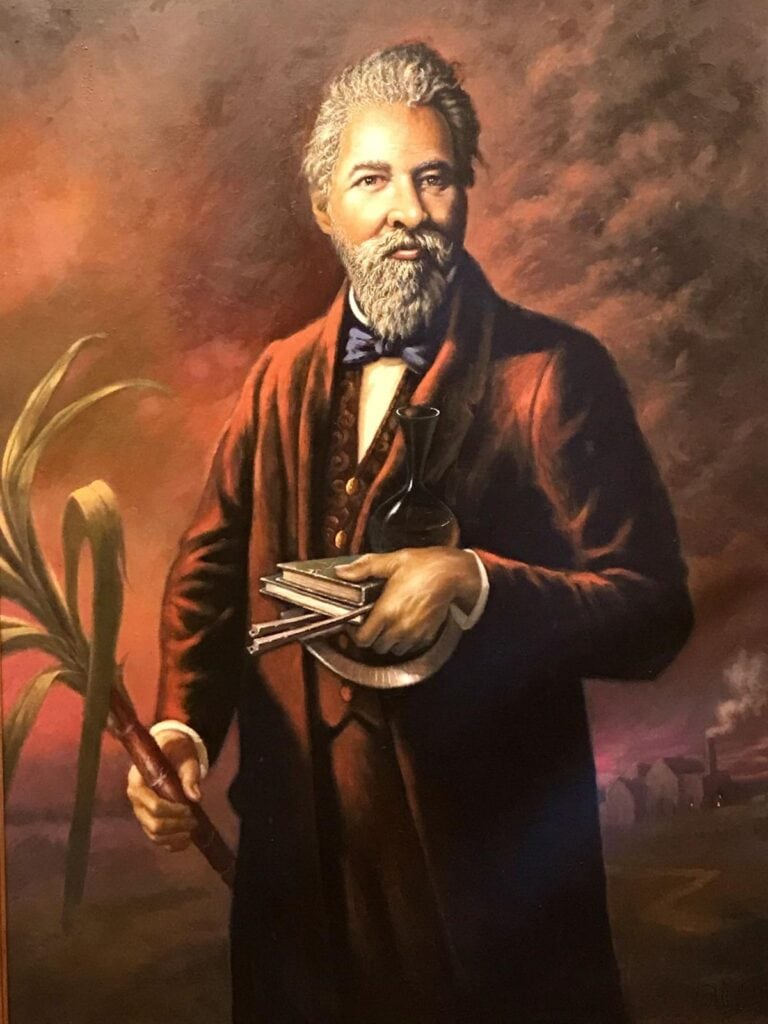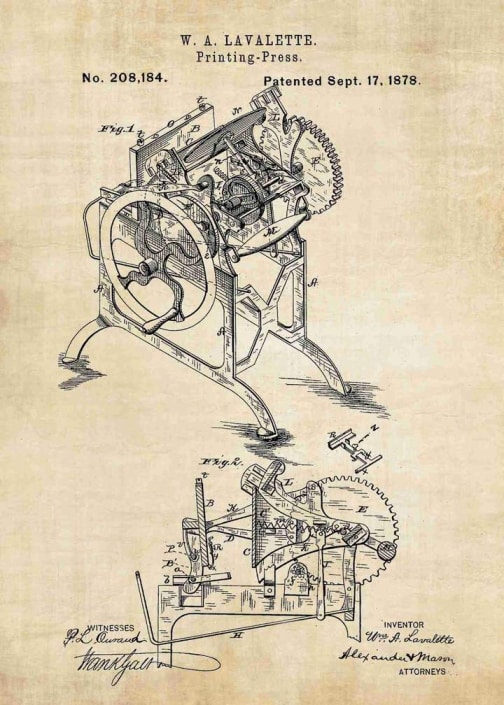During Black History Month, it’s essential to celebrate the remarkable achievements of African Americans in the print industry, an area where their contributions have been both transformative and enduring. The pioneering work of inventors who improved the technology and processes of printing African Americans have played a crucial role in shaping the print landscape. Figures like William A. Lavalette, who patented significant improvements to the printing press, and George Washington Carver who helped pave the way to a more sustainable soy-based ink, have left an indelible mark on the industry. Celebrating these contributions is not just about acknowledging the past; it’s about recognizing the foundation they laid for future generations in the print industry and beyond.

Norbert Rillieux
Norbert Rillieux, although not directly associated with the print industry, made groundbreaking contributions to the field of engineering and industrial processes that indirectly benefitted various industries, including printing. Rillieux, an African-American inventor and engineer born in 1806, is most renowned for his invention of the multiple-effect evaporator system used in sugar refining. This system significantly improved the efficiency and safety of sugar processing, which was a major industry during his time. The principles of heat efficiency and industrial scale processing he introduced can be linked to advancements in the production of paper and ink, key components of the print industry. By improving the efficiency and cost-effectiveness of manufacturing processes, Rillieux’s work contributed to the broader industrial advancements that enabled the print industry to scale up and reduce costs. His contributions are a testament to the impact that innovations in one sector can have on a range of others, showcasing the interconnectedness of industrial advancements.
George Washington Carver
George Washington Carver was a true pioneer whose innovations reached far beyond his famous agricultural achievements. Renowned for his groundbreaking research, Carver also laid the groundwork for innovations in sustainable materials, particularly through his extensive work with soybeans. This research paved the way for the development of soy-based inks, now a cornerstone of eco-friendly printing practices. Soy ink, a product of Carver’s early soybean studies, presents a more environmentally friendly alternative to traditional petroleum-based inks. It boasts lower levels of volatile organic compounds (VOCs) and facilitates easier deinking processes for paper recycling, marking a significant step forward in sustainable printing. His legacy serves as a reminder for us all to continue innovating and caring for our planet, showcasing the profound influence of his work on promoting sustainability across various industries.
 William A. Lavalette
William A. Lavalette
William A. Lavalette made notable contributions to the printing industry through his inventive efforts, significantly improving printing press technology. On September 17, 1878, Lavalette was awarded patent number 208184 for his improvements in printing presses. His enhancements focused on the construction and arrangement of the press, making it operate more smoothly and evenly. Additionally, Lavalette innovated by making certain parts of the press more easily removable, which facilitated cleaning and improved the mechanism used to load and unload paper. These advancements were crucial for the evolution of printing technology, enabling more efficient and higher quality printing processes. Although much isn’t known about Lavalette’s personal life, the impact of his work is well-documented through his patents and the changes they brought to the printing industry. His innovations helped set the stage for future technological advancements in printing, showcasing the significant contributions of African American inventors to the field.
The contributions of Black pioneers in the print industry are a testament to the power of innovation, resilience, and vision in the face of systemic barriers and challenges. These trailblazers not only advanced the technology and practices of printing but also paved the way for future generations to see themselves as integral parts of the industry’s ongoing story. Their work in the development of groundbreaking technologies has left an indelible mark on the field. As we celebrate their achievements, we’re reminded of the importance of diversity in driving innovation and the need to continue advocating for inclusive representation in all sectors. The legacy of these pioneers is not just in the pages they printed or the presses they improved; it’s in the broader narrative of progress and the push towards a more equitable and vibrant industry. Their stories, though often overlooked, are pillars upon which the print industry stands today, inspiring a new generation to dream bigger, reach further, and continue the work of making meaningful contributions to the world.